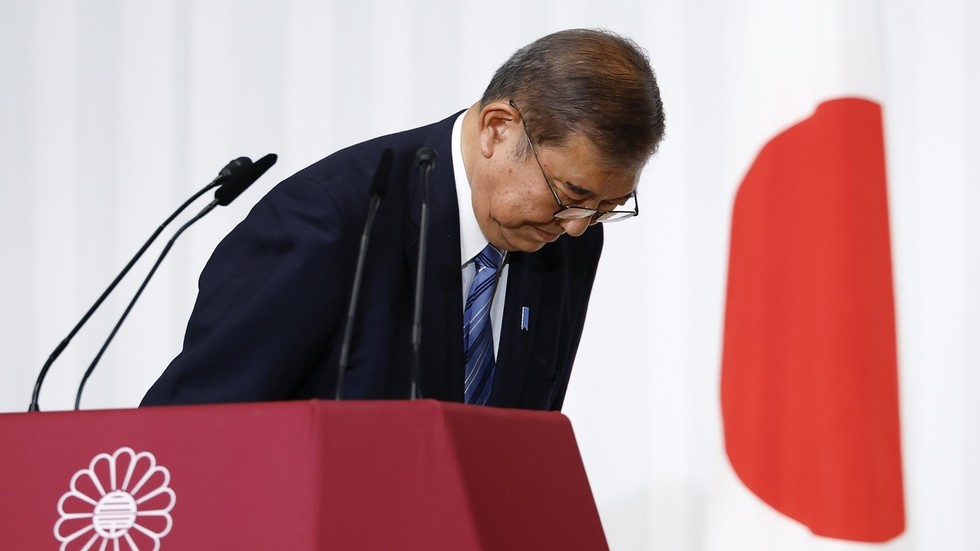Japanese Prime Minister Ishiba Shigeru recently announced his intention to seek a renewed mandate from parliamentary members, despite facing a significant electoral setback in the general elections held on Sunday. His ruling coalition, which includes the Liberal Democratic Party (LDP) and its junior partner Komeito, failed to secure the necessary 233 seats for a majority in the lower house. The LDP itself saw a drastic decline, dropping from 247 to just 191 seats, while Komeito lost eight of its representatives, reducing its total to 24. Meanwhile, the main opposition party, the Constitutional Democratic Party, made notable gains, adding 52 seats to their ranks and reaching a total of 148 members in the 465-seat House of Representatives.
Ishiba, who took office in October after the resignation of Fumio Kishida due to a corruption scandal, called for the snap elections to validate his leadership. At a press conference following the election results, he recognized the “exceptionally harsh judgment” from the electorate towards the LDP and expressed a commitment to rebuild trust with other political parties. He emphasized the need for a cooperative approach focused on serving the interests of the public, signaling an intention to bridge divisions within the political landscape.
According to Japanese law, a new prime minister must be selected within 30 days of the election. Given the current uncertainty, Ishiba could potentially remain in his position as a caretaker leader. During his time in office, he has attempted to dissociate the LDP from its previous controversies by not endorsing scandal-embroiled candidates. However, allegations have surfaced suggesting that his administration secretly funded these candidates’ regional offices, raising questions about his commitment to reforming the party’s reputation.
The LDP’s ongoing battle with corruption is underscored by the recent scandal involving slush funds allegedly linked to the party. Having dominated Japanese politics since the post-World War II era, with only two interruptions in 70 years due to economic crises, the LDP is under scrutiny for both its longstanding influence and its governance practices. Ishiba reaffirmed his belief that Japan cannot afford any period of stagnation given the current challenges related to security and economic conditions, underlining a sense of urgency for legislative effectiveness and responsiveness.
Notably, the recent elections set a record for female representation within the House of Representatives, with 73 women elected—up from a previous high of 54 in 2009. The landmark achievement resulted from a total of 314 women running for office, making up 23% of all candidates. This surge in female participation signals a shift towards greater diversity in Japanese politics, potentially bringing new perspectives and policy priorities to the forefront of legislative discussions.
In conclusion, the recent elections have put Ishiba in a precarious position as he navigates the fallout from the LDP’s disappointing performance while trying to consolidate power. Amidst allegations of financial misconduct and public discontent, his ability to foster bipartisanship and restore public trust will be crucial for his administration’s legitimacy and effectiveness in the coming months. The increase in female lawmakers represents a hopeful step towards a more inclusive political dialogue, suggesting that the electorate is looking for change and representation in Japan’s governance.

